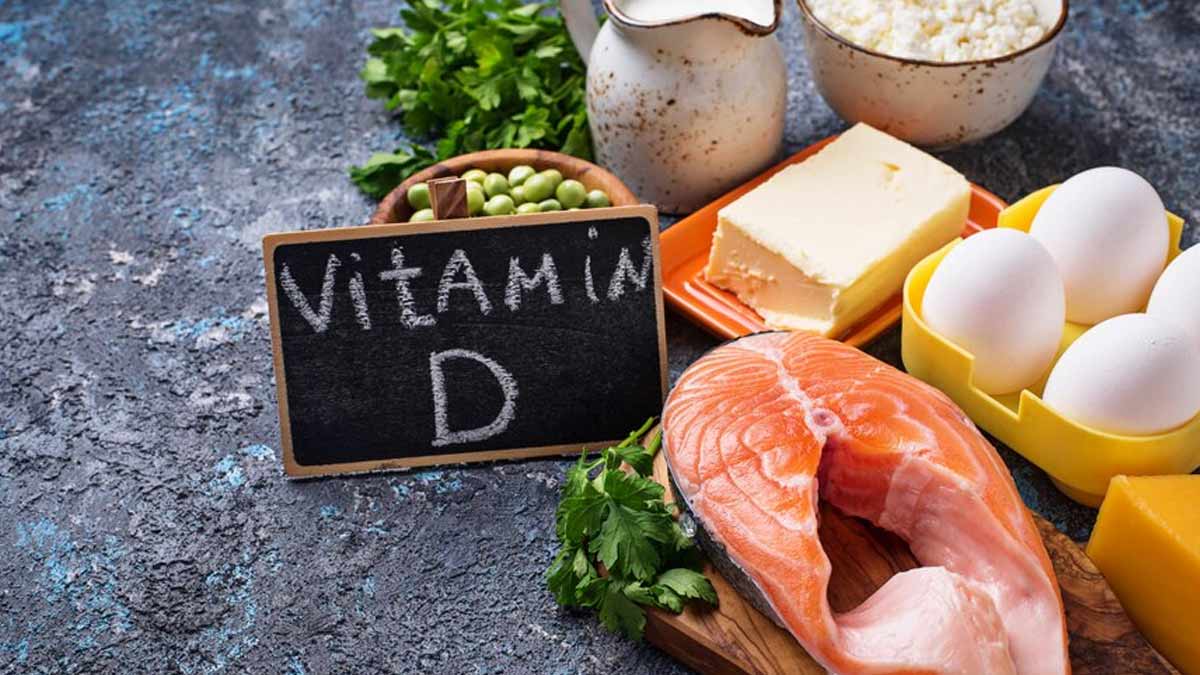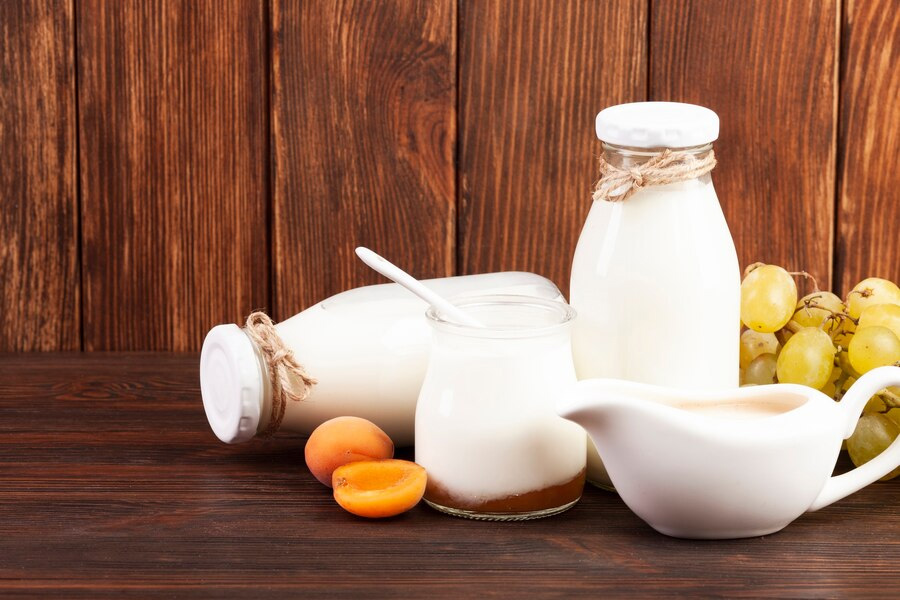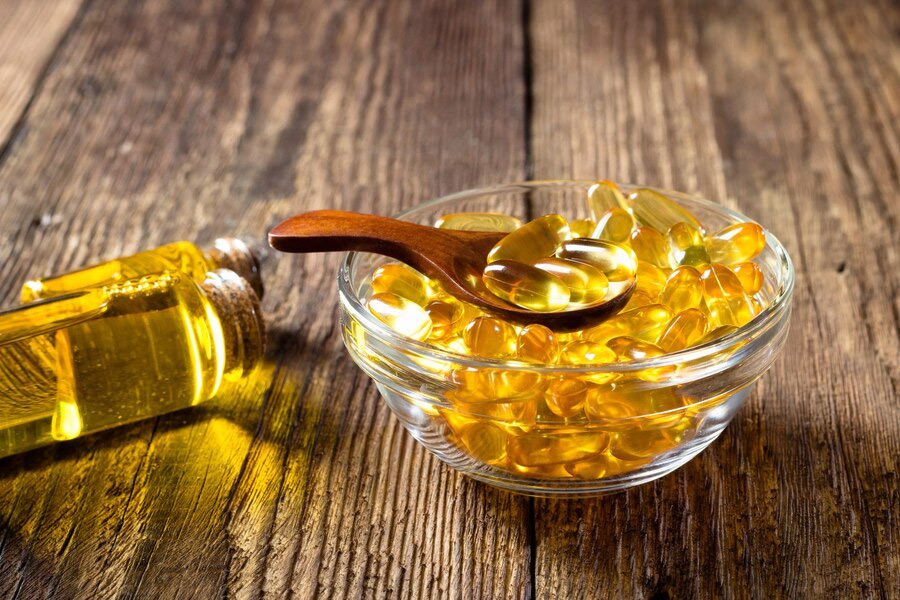
The overcast skies and reduced sunlight in monsoon can make it harder for our bodies to produce vitamin D naturally. Vitamin D is essential for maintaining strong bones, supporting our immune system, and ensuring overall well-being. To keep your vitamin D levels in check and enjoy the monsoon season to the fullest, consider incorporating these six vitamin D-rich foods into your diet.
Table of Content:-

According to the National Institutes of Health, Office of Dietary Supplements, vitamin D is essential for good health, aiding in the absorption of calcium, which is crucial for building strong bones. Together with calcium, vitamin D helps prevent osteoporosis, a condition that thins and weakens bones, making them more prone to fractures.
Sunlight exposes your bare skin to vitamin D, which is then produced by your body. While most people get some vitamin D this way, factors like cloudy weather, smog, ageing, and having darker skin can reduce the amount of vitamin D your skin produces. Additionally, your skin cannot produce vitamin D from sunlight that passes through a window.
Vitamin D-Rich Foods To Add To Your Monsoon Diet
1. Fatty Fish

Fatty fish, such as salmon, mackerel, and tuna, are exceptional dietary sources of vitamin D. They not only provide the sunshine vitamin but also offer omega-3 fatty acids that are beneficial for heart health. As per the United States Department of Agriculture (USDA) Food Composition Database, a 3.5-ounce (100-gram) serving of farmed Atlantic salmon provides 526 IU of vitamin D, which is 66% of the Daily Value (DV). Including grilled or baked fish in your meals twice a week can significantly boost your vitamin D intake.
2. Egg Yolks
Egg yolks are not only a versatile cooking ingredient but also pack a good amount of vitamin D. Consuming whole eggs, whether boiled, scrambled, or in omelettes, can contribute to your daily intake of this essential nutrient. Opt for free-range or fortified eggs for an added nutrient punch.
Also Read: From Dull Skin To Acne: Expert Explains How Your Face Reflects Vitamin Deficiencies
3. Fortified Dairy Products

Many dairy products, such as milk, yoghurt, and cheese are fortified with vitamin D. Check the labels to ensure they contain added vitamin D, which enhances their nutritional value. These dairy items not only provide calcium but also help in meeting your daily vitamin D requirements, which are crucial for maintaining strong bones.
4. Mushrooms
Mushrooms, especially those exposed to sunlight or UV light during growth, naturally contain vitamin D. The USDA states that certain wild mushrooms, due to their exposure to UV light, are excellent sources of vitamin D2. Morels, a type of wild mushroom, contain 136 IU of vitamin D per cup, providing 17% of the DV.
Including varieties like shiitake, maitake, or portobello mushrooms in your diet can contribute to vitamin D intake. They can be added to salads, stir-fries, or enjoyed grilled as a nutritious side dish.
Also Read: Rheumatoid Arthritis: Expert Explains If Vitamin D Can Help Manage Rheumatoid Arthritis
5. Cod Liver Oil

Another potent source of vitamin D is cod liver oil. While its taste may not appeal to everyone, taking cod liver oil capsules or incorporating a small amount into your diet can provide a concentrated dose of this essential nutrient. Consult your healthcare provider before adding cod liver oil to your routine, especially if you have specific health conditions.
6. Fortified Plant-Based Milk
People following a vegan diet or those who are lactose-intolerant can opt for fortified plant-based milk, such as soy milk, almond milk, or oat milk. These alternatives are often fortified with vitamins and minerals, such as vitamin D, to offer similar benefits to dairy-based options.
Bottomline
Adding these six vitamin D-rich foods into your diet can help ensure that you meet your nutritional needs even when sunlight exposure is limited. Prioritise these foods to support your bone health and overall well-being throughout the rainy season.
[Disclaimer: This article contains information provided by an expert and is for informational purposes only. Hence, we advise you to consult your own professional if you are dealing with any health issues to avoid complications.]
Also watch this video
Read Next
Never Pair These Foods With Tea
How we keep this article up to date:
We work with experts and keep a close eye on the latest in health and wellness. Whenever there is a new research or helpful information, we update our articles with accurate and useful advice.
Current Version